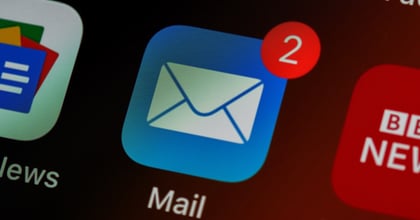
It’s the end of an era.
It’s been 23 years since BlackBerry first launched its original 850 phone, and today marks the day where the company is pulling the plug on its classic offerings.
Yes, if you happen to own a vintage BlackBerry you’ll find there is no longer support for its operating system. You won't be able to make or receive calls, send texts, access mobile data or send texts on these devices.
This includes the BlackBerry 7.1 OS and earlier, the tablet-based BlackBerry PlayBook OS and the BlackBerry 10 operating system.
This is a testament to how quickly technology has changed over the last twenty, even ten years. In the late 2000s and early 2010s, BlackBerry’s seemed to rule the UK. With trams, planes and trains full of the signature tapping of the phone’s iconic qwerty keyboard.
This is unsurprising considering how attractive and new BlackBerry’s Instant Messenger Service (BBM) was to users during the 2000s, its encryption feature keeping their messages private and secure. BlackBerry also allowed users access to up to six different email addresses in one stream, making it ideal for working professionals.
And its qwerty keyboard, beyond being a unique stylistic element, helped users develop superior muscle memory relating to texting due to its size, allowing for fast and accurate messaging.
However, these benefits over time have been overshadowed by the innovations of Apple and Samsung. And as BlackBerry users have dwindled, so has the support and functionality of their phones.
Support for apps including WhatsApp and BBC iPlayer have been removed from BlackBerry OS devices. And recently YouTube stopped working on the phones as well.
Not to mention that apps, an absolute staple today of phone use, have become a non-existent element for the few remaining BlackBerry users. This has created a lot of inconvenience for users considering the greater reliance we as a society have today on apps.
For example, many BlackBerry users found themselves at the start of the Covid-19 pandemic unable to download the NHS app forcing them to sign in on other devices.
In light of realities like these, it could be argued BlackBerry simply hasn't kept up with changing times, and despite these phones' charm, it makes sense to put them to rest.
BlackBerry has publicly thanked “our many loyal customers and partners over the years.”





